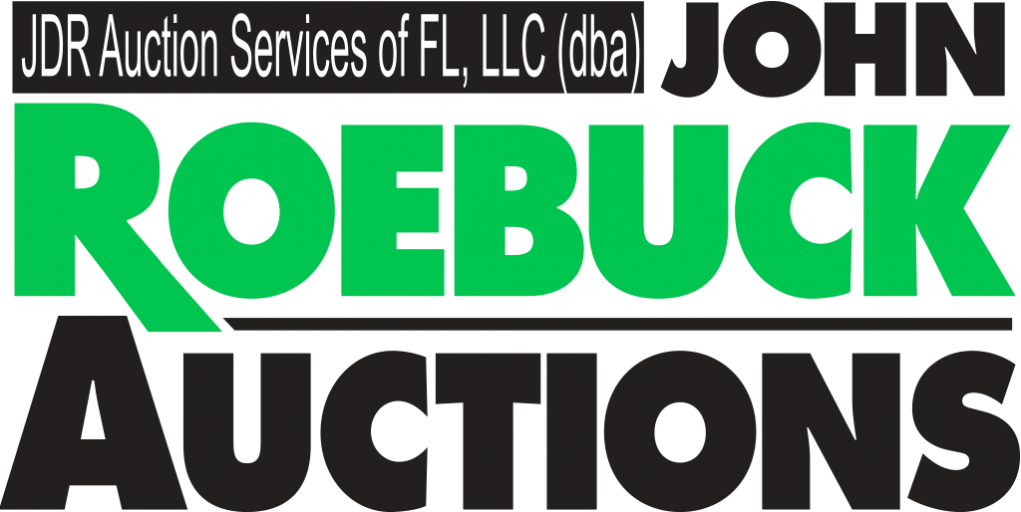Seller's Benefits at Auction
- Seller knows exactly when the property will sell and close
- Buyer signs a no contingency contract to close within 30 days
- Creates competition among buyers — auction price can exceed the price of property sold with other method
- The aggressive marketing campaign increases interest and visibility.
- Buyers come prepared to buy
- Assurance that the property will be sold at true market value
- Property is sold “As Is”; No seller warranties
- Fast selling time reduces long term carrying costs, including interest, taxes, insurance and maintenance
- Seller pays no commission
- Takes seller out of the negotiation process
- Eliminates numerous and unscheduled showings
Our Auction Process
A real estate auction is the sale of real estate property in “As-Is” condition for fair market value using a competitive bidding process. “As-Is” is a legal term used to disclaim liability for an item being sold. “As-Is” denotes that the “seller is selling” and the “buyer is buying” an item in whatever condition it presently exists and that the buyer is accepting the item “with all faults,” whether or not immediately apparent.
Due Diligence
Prior to selling real estate by auction, it is important to have sufficient knowledge of the property as well as knowledge of the current market. John Roebuck Auctions conducts a due diligence by gathering facts and information about each property and includes it in bidder packages or Property Information Packages available for download under each property auction.
Auction Proposal
Once due diligence is complete, John Roebuck Auctions will develop a proposal for the seller to outline the details of the auction process and how the property is going to be marketed. The auction proposal includes a property analysis, marketing plan, proposed schedule of events, financial projections, fee structure, and closing information.
Marketing Plan
One success factor in the auction method is an accelerated, and polished marketing plan. The plan is custom-designed to fit the needs of the seller and targets a prime audience suited for the property. Because there is a generally short lead-time in a real estate auction, the program must be comprehensive, intense, and targeted. Marketing efforts typically begin 4 to 6 weeks prior to the sale date.
Information Package
The Property Information Package (PIP) is a comprehensive document that outlines important details of the property. Thorough research and a high standard of care are put into the development of the Property Information Package. By providing this information, bidders are given the confidence to participate in the auction possibly resulting in a higher sale price for the seller. This document is provided to all potential buyers.
Before Bidding Begins
The auction begins promptly at the appointed time with opening remarks summarizing the terms of sale, the methods of bidding, and any last minute changes or disclosures. These comments usually take only a few minutes, concluding with the auctioneer answering any final questions.
Bidder Assistants
The Bidder Assistants are auction staff members who are positioned among the auction attendees to help all bidders communicate their offers to the Auctioneer. Bidders place a bid by raising their bidder card. It is a myth that bids can be made accidentally by scratching one’s nose or similar accidental movement. If a bid was not intended, the mistake is corrected by simply notifying a Bidder Assistant. Any tie bids or other issues regarding who has the high bid are always resolved by the Auctioneer, who has complete and final authority.
The Auction
From the first bid the auction moves quickly. It is not necessary, nor customary, for the auctioneer to slowly announce, “Going once, going twice, etc.” When it is determined that the final bid has been made, the Auctioneer will identify and congratulate the high bidder. In a reserve or “subject to confirmation” auction, the seller retains the right to accept or reject the high bid within a specified time after the auction. If the auction is for a single property such as a home, this concludes the auction and the purchaser simply executes the Real Estate Purchase Agreement and makes the required Earnest Money Deposit.
Closing
Closing on the property typically takes place within 30 to 60 days from the date of the auction. Closing is not contingent on financing, appraisals or inspections.


